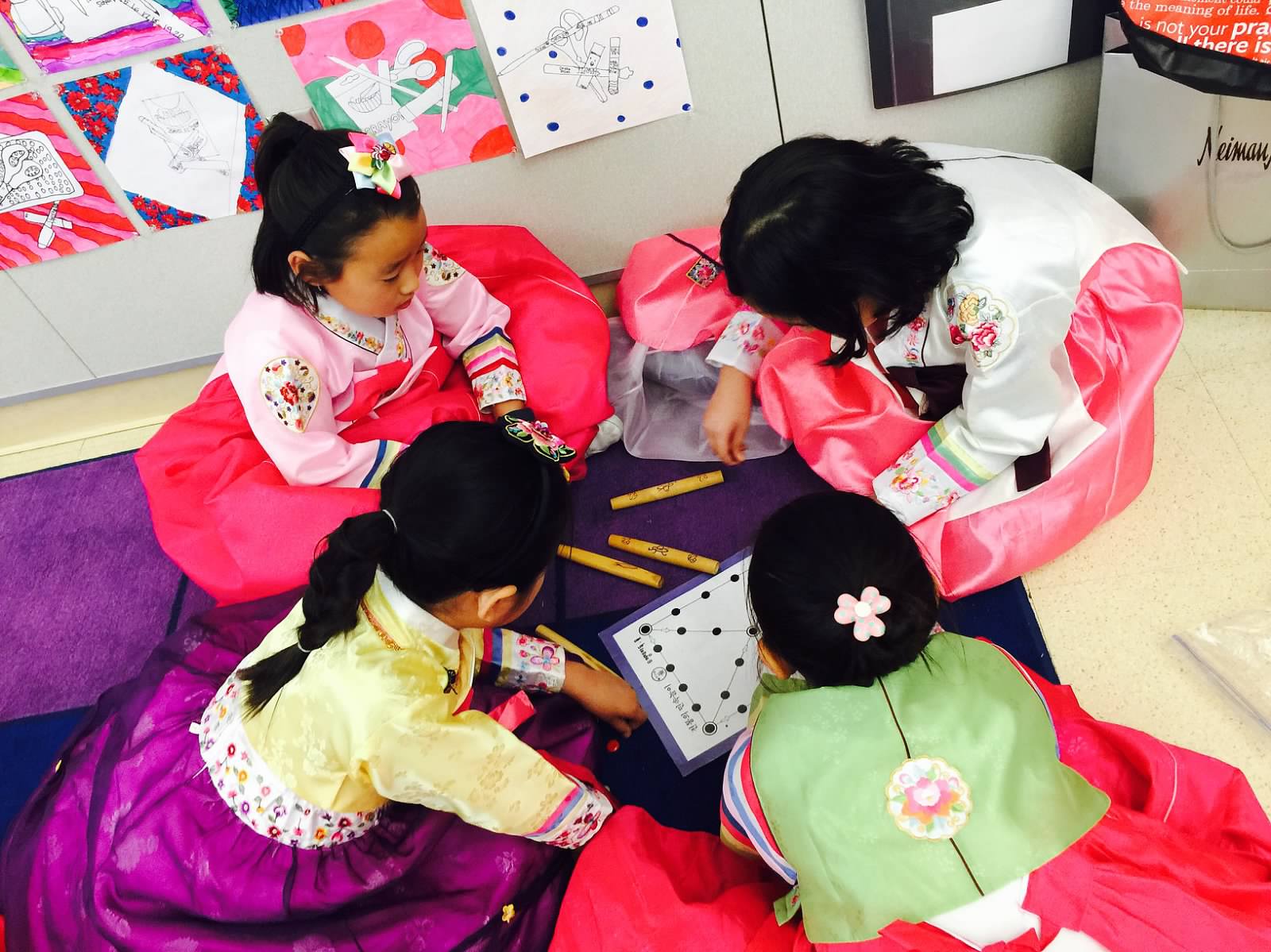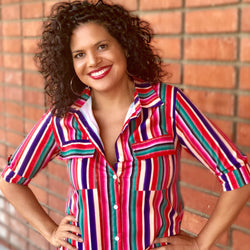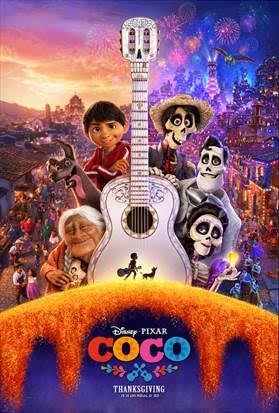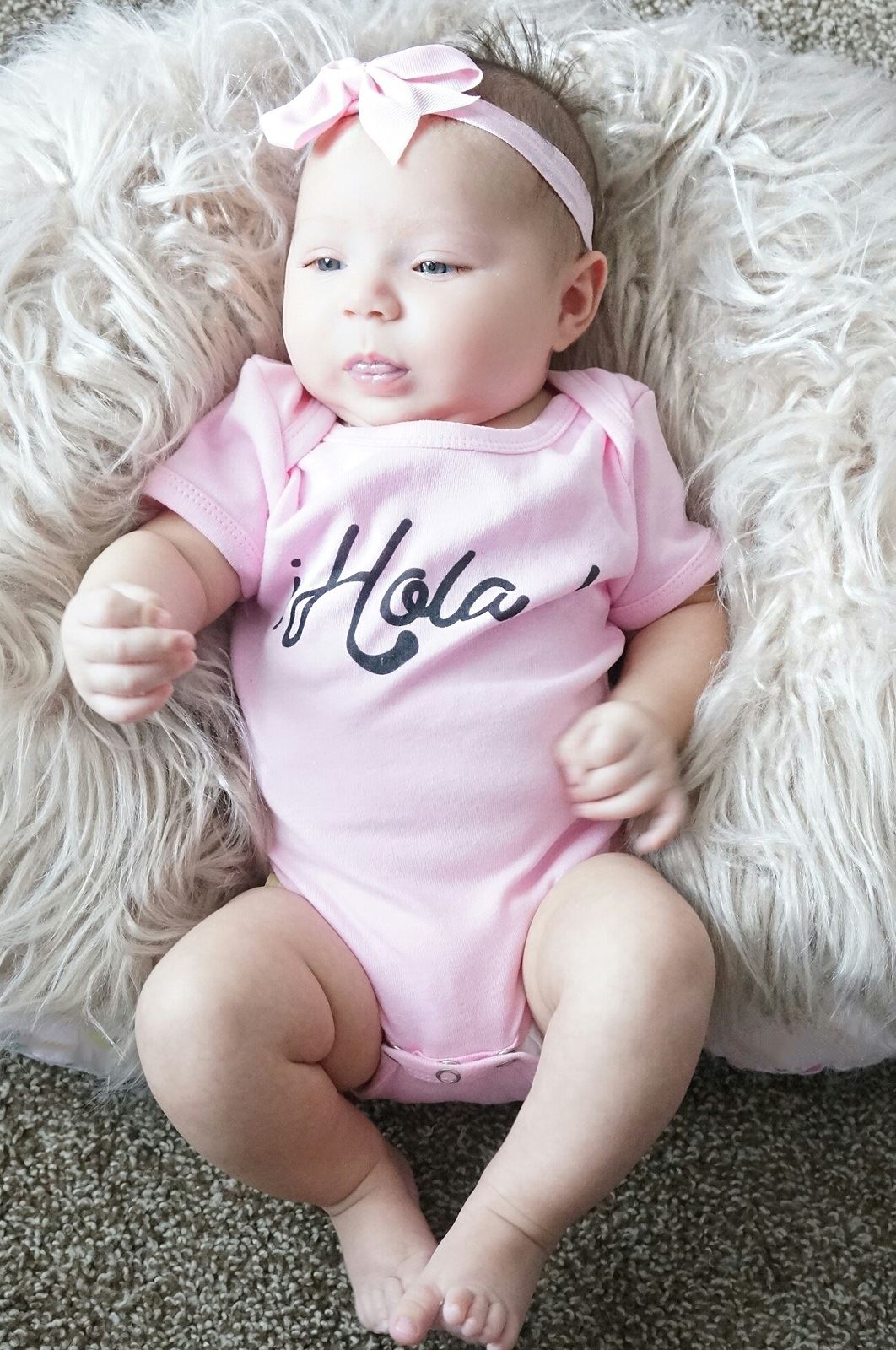
Celebrating Chuseok (추석)
Today we celebrated the Korean harvest festival of Chuseok (Korean: 추석) in my kid's Korean Immersion elementary class. Traditions are very important in our home. I am mixed Latina and Black and my husband is Korean so being a multicultural family and raising our children as mini global citizens to appreciate and celebrate their respective cultures is an invaluable gift we are passing on to them.
In all honesty, it is also a chance for me to learn more about my children's Korean culture. We learn from each other, right? So Chuseok 추석, also known as Korean Thanksgiving Day, is one of the most important and festive holidays of the year. Just like the American tradition of Thanksgiving, Koreans return to their ancestral hometowns to celebrate with their families to feast on traditional foods and rice wines.
The origins of Chuseok 추석 can be traced back to Korea’s past as an agrarian society. During that time period, families gathered to enjoy time together as well as give thanks to their ancestors for a good harvest.
Other customs include paying respect to ancestors by cleaning their graves and presenting foods to their spirits.

Today we enjoyed special foods like rice cake called songpyeon which is made with finely ground new rice and the dough is kneaded into small round shapes and filled with sesame seeds, chestnuts, red beans. The rice cakes are arranged upon layers of pine needles as they are steamed. There's also one of my faves, japchae, which is a stir-fried dish that combines sweet vermicelli noodles made from the starch of a white sweet potato, thinly slices of beef, and various vegetables.
Like food, clothing is also very important in celebrations such as Chuseok 추석. The hanbok 한복 is the cultural clothing of Korea. For girls it consists of a beautiful dress and colorful jacket and for boys, pants and a jacket.
Along with games, traditional folk dance, Ganggangsullae, is performed under the full moon in hanbok (Korean ethnic dresses).
In addition to memorializing the deceased, Koreans also commemorate the holiday by playing an array of folk games. Depending on the region in Korea, different games are played including yoonori, dressing up as animals, archery, Korean board games and even Korean wrestling.
As I looked at my daughter and son in their hanboks 한복 eating the foods their ancestors have eaten, and playing Korean games, I reflect on what it means to pass this tradition onto them. I firmly believe you don't have to choose one culture to celebrate. Yes my children are Americans but like other multicultural families, it doesn't have to stop there. They can maintain and celebrate all that is them...one festival at a time.
Visit the store to browse our asian inspired clothing.











Leave a comment
This site is protected by hCaptcha and the hCaptcha Privacy Policy and Terms of Service apply.